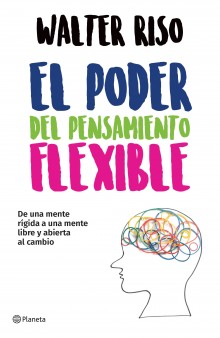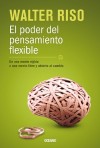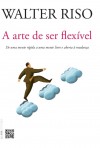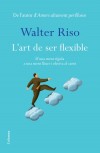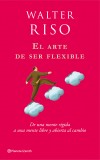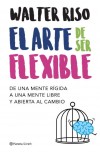The Art of Being Flexible
SELF-HELP. NEW EDITION PLANETA, 2018. 208 PAGES.
Is mental inflexibility or hardness an illness? It would seem so. Modern research clearly indicates that processing information in a way that is closed and resistant to change not only generates a host of disorders in people, but significantly affects the society in which we live. The power of flexible thought stems from two key points: improved quality of life and increased ability to adapt. It is impossible for me to have a satisfactory and meaningful life if I cling blindly to the past and to tradition. The first step toward inciting a "personal psychological revolution" is a loosening up of the mind in order to be able to have realistic and constructive contact with oneself, others and the world. How do we keep existential amazement and the dynamic exploration of existence alive if rigid, untouchable, and prearranged paradigms of thinking stand in our way?
This book identifies the characteristics of an inflexible mind (dogmatic, simplistic, solemn, authoritarian, prejudiced, conformist) and the opposing features that define a flexible mind (critical, complex, playful, pluralistic, impartial and non-conformist). Following the comparison of Flexible Minds vs. Inflexible Minds, each chapter proceeds to explain how to go from being rigid to being flexible (e.g., from dogmatism to critical thinking, from conformity to non-conformity, from authoritarian thinking to pluralistic thinking).
Special emphasis is also placed in each chapter on the "bunker" that the mind creates to irrationally defend inflexibility. The strategies of these bunkers are cognitive distortion, mental operations aimed at self-deceit, and the belief that one is the sole possessor of the truth and can impose it as he or she sees fit.
PUBLISHED BY: Spanish ZENITH / OCÉANO / PLANETA / COLUMNA | Brazil L&PM
Other titles from Walter Riso:
-
I loved you so much, I forgot ab...
SELF-HELP, 2023
-
SELF-HELP, 2020
-
The courage to be who you are (e...
SELF-HELP, 2020
-
SELF-HELP, 2019
-
SELF-HELP, 2019
-
NOVEL, 2018
-
Now that I’ve said goodbye, ho...
SELF HELP, 2016
-
Wonderfully Imperfect, Scandalou...
SELF HELP, 2015
-
SELF HELP, 2015
-
SELF-HELP. 2013.
-
Detach Oneself Without Anestesia
SELF-HELP, 2012
-
SELF-HELP, 2012
-
SELF HELP, 2009
-
SELF-HELP, 2011
-
SELF-HELP, 2009
-
SELF-HELP, 2009
-
SELF HELP, 2009
-
SELF-HELP, 2008
-
SELF-HELP, 2008
-
What Every Woman Should Know abo...
SELF HELP, 2008
-
SELF HELP, 2008
Provença 293, 4-1 - 08037 · Barcelona +34 93 832 70 88 · · Member of ADAL
